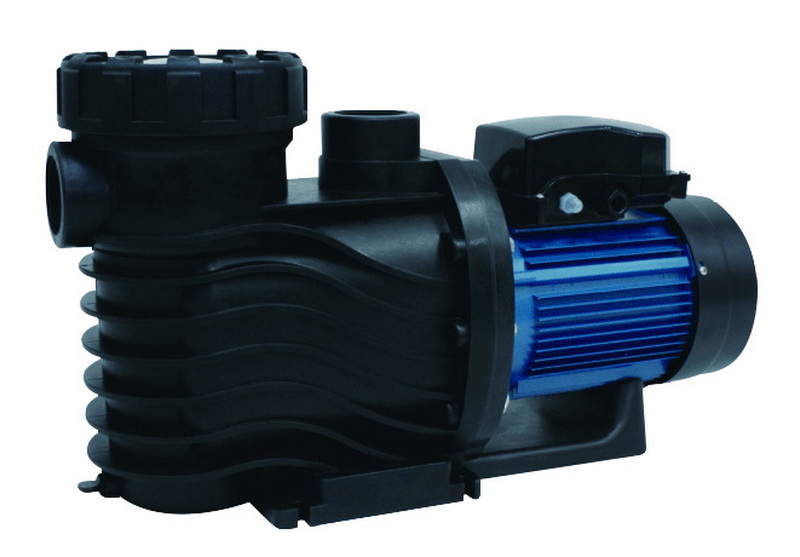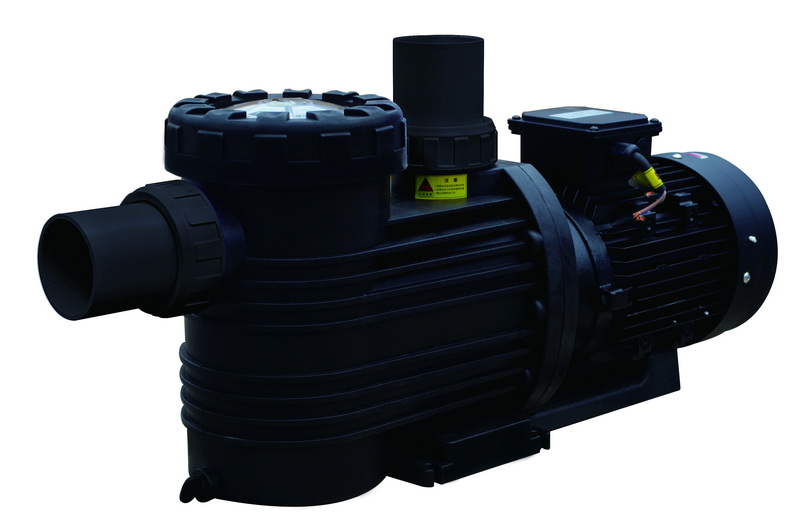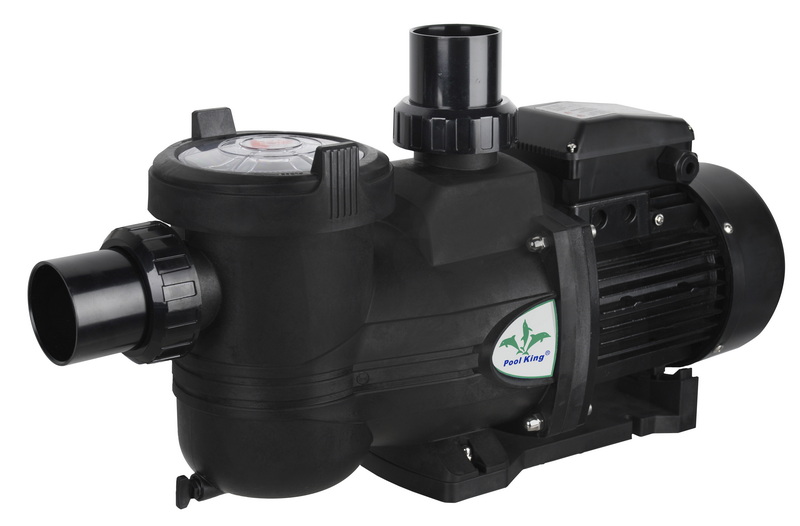Views: 222 Author: Tina Publish Time: 2025-09-10 Origin: Site








Content Menu
● Understanding Why Pool Pumps Make Noise
>> Worn Components and Loose Fittings
● Practical Methods to Quiet Your Pool Pump
>> 1. Secure and Isolate the Pump to Reduce Vibration
>> 2. Build or Install a Pool Pump Quiet Box
>> 3. Use Sound Absorption Materials Around the Pump
>> 4. Perform Regular Maintenance to Minimize Noise
>> 5. Upgrade to a Quieter Pump Model
>> 6. Relocate the Pump and Add Barriers
● Additional Tips and Techniques
● Frequently Asked Questions (FAQs)
>> 1. What kind of pad should I use under my pool pump?
>> 2. Can I fully enclose my pool pump?
>> 3. How frequently should I clean the pump basket to prevent noise?
>> 4. Will switching to a variable speed pump help with noise?
>> 5. What maintenance steps reduce squealing or rattling noises?
A noisy pool pump disrupts the tranquility of your backyard oasis and can be a source of frustration for pool owners and neighbors alike. The constant hum, vibration, and mechanical noise reduce the enjoyment of a swimming pool area. Fortunately, multiple effective solutions exist to significantly reduce pool pump noise while maintaining efficient pool filtration. This comprehensive guide explains causes of pump noise and delivers practical step-by-step solutions—complete with soundproofing techniques, maintenance tips, equipment upgrades, and multimedia aids. Following these recommendations will help restore calm to your poolside environment.

To successfully reduce pool pump noise, it's critical to first understand its common sources:
Pool pumps contain motors and internal moving parts that naturally generate sound during operation. Older or poorly maintained motors often amplify unpleasant noises like whining, grinding, or rattling.
When the pump vibrates and transfers movement to the concrete slab, deck, or mounting base, structural noise is transmitted loudly through these surfaces. Vibration is a primary contributor to nuisance noise around pumps.
The pump motor also emits airborne noise—a hum or buzz carried through the air. This noise radiates from the motor housing and water flow inside the pump.
Insufficient water flow or low pool water levels cause cavitation—a bubbling or gurgling sound caused by water vapor pockets collapsing in the pump. Cavitation stresses the pump and creates unwanted noise.
Worn bearings, seals, or loose bolts further add squeals, rattles, and clanks to the overall sound output. Neglected maintenance exacerbates these noises.

Implementing several complementary strategies can dramatically reduce pool pump noise by addressing both vibration and airborne sound.
Vibration-induced noise is often the easiest to fix. Steps include:
- Ensure the pump is firmly bolted to a solid, level concrete slab or base.
- Use an anti-vibration pad or rubber mat underneath the pump to absorb vibrations. Products designed for vibration damping, yoga mats, or heavy rubber mats work well.
- Check for loose bolts and fittings and tighten them regularly to prevent rattling.
Anti-vibration mats isolate the pump from hard surfaces, reducing noise transmission by up to 30% or more.[1][2][4]
One of the most effective steps to block airborne noise is to enclose the pump in a soundproof box:
- Construct a dense box made of 1/2” plywood or fiberglass that fully encloses the pump on all sides and top.
- Seal all seams and gaps with acoustic sealant to prevent sound leaks.
- Line the interior with outdoor-rated acoustic foam panels or specialized soundproofing mats to absorb internal noise reflections.
- Include baffled vents ensuring adequate ventilation to avoid overheating.
This enclosure absorbs and blocks noise, reducing sound levels by 50-70%, or up to 15 dB, depending on materials and construction.[2][1]
Additional materials can be applied to enhance noise reduction:
- Mass Loaded Vinyl (MLV) barriers wrapped around the pump enclosure add mass that blocks airborne sound.
- Acoustic foam inside or outside the enclosure absorbs noise reflections.
- Waterproof and UV-resistant materials ensure durability around outdoor pumps.
Combining dense barriers with absorption maximizes noise mitigation without interfering with pump operation.[1][2]
Keeping the pool pump well-maintained is critical for quiet operation:
- Clean the skimmer and pump baskets frequently to promote good water flow and prevent cavitation noise caused by vacuum leaks.
- Raise the pool water level if it is below the skimmer intake to ensure sufficient water feed.
- Lubricate and replace worn bearings, seals, and parts to eliminate squeals, rattling, and grinding noises.
- Tighten all screws and clamps to stop loose part vibrations.
Routine care prevents many common noise sources and extends pump life.[4][5]
If the noise is inherent to an aging or poor-quality pump, replacing it may be the best long-term solution:
- Variable speed pumps run at lower speeds and produce much less noise than single-speed models.
- Inverter pumps with permanent magnet motors operate whisper quiet, commonly at noise levels around 36 decibels.
- Newer pumps also offer energy efficiency benefits, reducing operational costs.
Investing in a modern, quiet pump can transform the pool environment.[5][4]
Sometimes relocating the pump further from high-traffic or living areas reduces perceived noise:
- Install noise barriers like fences or walls between the pump and sensitive areas.
- Plant dense shrubs or trees to naturally absorb sound.
Distance and obstacles reduce noise exposure.[4]
- Place a vibration mat if the pump is on uneven ground causing persistent vibratory noise.
- Use a pump cover or pre-made soundproof enclosures specifically designed for pool pumps.
- Ensure the pump is installed on a level, stable surface to minimize mechanical stress and noise.
- Consider sound-deadening blankets or curtains in indoor pump installations for extra noise control.
A noisy pool pump can detract from the enjoyment of your backyard sanctuary, but multiple effective strategies exist to quiet it down. Securing the pump on anti-vibration pads, building a dense, well-sealed quiet box with sound absorption, and performing diligent maintenance tackle the majority of noise causes. Upgrading to quiet, variable speed pumps offers a long-term solution with additional energy savings. Incorporating these noise reduction techniques along with barrier placement and pump relocation can restore peaceful, relaxing poolside spaces. With the right combination of soundproofing, care, and technology, it's possible to dramatically reduce pool pump noise and enjoy serene pool surroundings.

Use thick rubber anti-vibration mats or specialized vibration pads suited for outdoor use. These materials absorb structural vibrations and reduce noise transmission effectively.[11][2]
Yes, but the enclosure must have ventilated openings with baffles to prevent overheating. Well-sealed enclosures lined with acoustic foam can reduce noise significantly while protecting the pump.[2][1]
Clean the skimmer and pump baskets monthly or more often in dusty or leafy environments. Keeping these baskets free of debris prevents cavitation and strain noise.[5]
Yes, variable speed pumps operate at lower velocities and noise levels than single-speed pumps, offering quieter and more energy-efficient operation.[4][5]
Replacing worn bearings, lubricating moving parts, and tightening loose screws or fittings will eliminate most mechanical noise sources.[5]
[1](https://www.soundproofcow.com/soundproof-a-space-restaurant-office/soundproof-a-car-compressor-boat-pump-or-other-equipment/pool-pump-soundproofing-2/)
[2](https://www.secondskinaudio.com/soundproofing/pool-pump-quiet-box/)
[3](https://www.slideserve.com/Enviro9/how-to-reduce-water-pump-noise-a-quick-overview)
[4](https://www.mavaquadoc.com/blogs/pool-maintenance-blog/tips-for-reducing-pool-pump-noise)
[5](https://www.aquagem.com/news/how-to-quiet-pool-pump)
[6](https://www.workshop.bunnings.com.au/t5/Outdoor/How-to-add-pool-pump-sound-proofing/td-p/242460)
[7](https://noisypool.com/understanding-level-of-noise-pollution-in-decibles/)
[8](https://www.youtube.com/watch?v=VAF_mF9V4xY)
[9](https://www.reddit.com/r/Acoustics/comments/17ygshy/pool_pump_noise_and_how_to_get_less_bang_for_your/)
[10](https://mrpoolman.com.au/blogs/news/the-secret-to-a-more-relaxing-pool-silence)
[11](https://noisypool.com/how-to-quiet-a-noisy-pool-pump/)
